E-WASTE MANAGEMENT: Challenges for Bangladesh
and entrepreneurs. Here we publish a summary of the discussions.
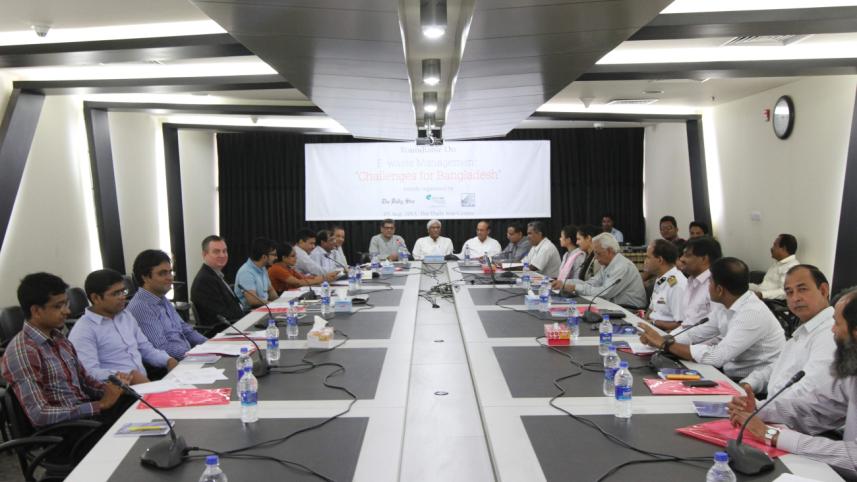
E-Waste Practices in Bangladesh * Sixty three million cell phones were imported to Bangladesh in the last 3 years; countless others entered the country through grey channels. | Environmental Impact of E-Waste Dr. Moinul Islam Sharif Senior Fellow Bangladesh Centre for Advance Studies * There are many precious, earthly and harmful metals in electronics products which can be reclaimed in the recycling process. * Silver, gold, palladium, copper and platinum are few of the precious metal in electronic products. * Lead, mercury and chromium are harmful elements present in electronics. * The impact of e-waste on health is immeasurable. * The management of e-waste is critical as it poses many risks on human and environment. * Leachates are produced when dumped into the soil and flying ash is created when burned. * Cyanide is needed to retrieve gold from the electronic products, and handling and disposal is critical as it leaches into the environment. * Generates 40 million metric ton of e-waste annually. | |
E-Waste Management, A Legal Framework *The quantities of e-waste will increase in the future, as more countries agree on free trade, tariffs removed, cell phone and household appliance usage penetrates the rural markets worldwide. |
Electronic Waste
The transformation of Bangladesh through digitalization and connectivity is a commendable goal the Government of Bangladesh has undertaken to push Bangladesh towards middle-income status country by 2021. This transformation will require allocation of additional resources, enabling policies and transparent processes. The collaboration of both Private and Public sector with resources, leadership and ICT focused development is required to realize the dream of “Digital Bangladesh”.
With development come a particular policy challenge, being the challenge of drafting laws to address the fast paced changes occurring in the technology ecosystem which must balance the need for growth with the impact on the environment, whilst still envisioning meeting the future needs. In regards to the growth of digitization and environmental impact, the issue relates to the impact on the environment of the massive amount of digital by-products or electronic waste (e-waste) such as discarded computers, CRT monitors, hardware components, televisions, refrigerators, cell phones and house hold electronic appliances. If such e-waste is not properly processed, the toxins inherent in such waste is known to adversely impact the environment; if processed properly, with the support of resources and enabling policies, e-waste processing or recycling provides an opportunity to not only minimize impact on the environment, but also to positively impact growth. The following paragraphs explore how we may proceed with processing e-waste with minimum impact on human and environment?
Waste recycling (paper, glass, car battery, plastics, etc.) by the informal sector has been around as long as one can remember. The informal sector plays a vital role in the collection process of e-waste, their link with the “vangariwalla” or collector is critical in the trade value chain. The informal recycling processors have helped in keeping e-waste within tolerable limits and will be an integral part as formal entrepreneurs enters waste recycling business. Training and educating the informal recyclers on the impact of discarding & safe handling of harmful elements is very important occupational health and safety concern.
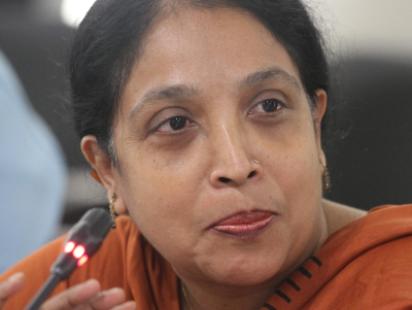
Dr Rowshan Momtaz, Professor of Civil Engineering, BUET suggested the educating consumers of health risks associated with e-waste. The informal sector consists of workers who lack the skill, knowledge and equipment to dismantle, recycle and dispose electrical waste in an environmentally prudent manner. Hence everything is dismantled and handled manually without any protective gear. An additionally hazardous practice such as open burning and acid treatment is used for further processing of electronic waste. All kinds of electronic waste, which cannot be resold in the second hand market, are collected and then they are sent to different places around the city for dismantling and recycling processes.
WEE directive incorporates the inclusion of producers with Extended Producer Responsibility and consumers with Advance Recycling Fee. EPR is a policy approach under which the producers, importers, or brand owners of electronic equipment pay a certain amount of fee to ensure proper disposal and recycling of the electronic product after it reaches its end of life. Thus here the producer of the electronic equipment is fully responsible for its proper end of life management; whereas on the other hand ARF is an amount paid by the consumer at the cash register when buying any electronic products. This fee is for the electronic product to be recycled properly when the product reached it end of life and turns into electronic waste. Hence, consumers of electronic products pay it forward so that in this way all electronics is recycled in an appropriate manner.
Introducing buy-back programs would entice consumer to play their role in the e-waste management chain. The draft law has 24 articles, and EE products are covered however a clearly defined process will make it easier to implement the law. There is a need for proper regulatory statue to attract investors in the formal recycling business.
There is a need for Bangladesh to legislate e-waste. We also need to take a look at other countries to see how they are faring in this regard. It would be beneficial for Bangladesh to collaborate with international bodies that help developing countries effectively deal with e-waste management.
City Corporation has a major role in the e-waste management system. The City Corporation needs to adopt new process and laws to ensure proper separation of e-waste at the collection points. The City Corporation should gather more information on e-waste management system from developed countries such as Japan to ensure proper processes are in place to meet the higher quantities of e-waste.
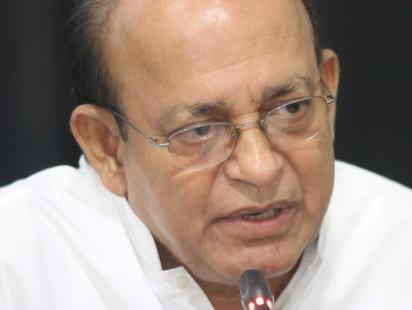
Mr. Anwar Hossain, M.P. Hon'ble Minister, Ministry of Environment and Forests stressed on cooperation from all sectors, private, ordinary citizens and NGOs to work with the government to ensuring a proper e-waste management system. He also stated that with technological advancement and industrial revolution, the amount of disposed electronics is increasing every day and the Third world countries like us are mostly on the receiving part of this pollution. The Minister stated that his government has made significant progress in banning polythene and passing laws on brick kilns to have lesser impact on the environment. He also indicated of a separate budget allocation to run this management system and to ensure a greener environment. Mr. Hossain is optimistic that if we all work together, we could make enough progress in e-waste management as well.
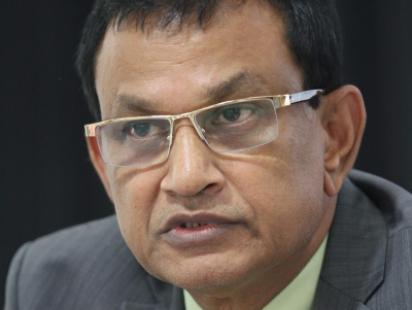
Abu Saleh Sk. Md. Zahirul Haque, Secretary of the Ministry of Law suggested launching awareness campaigns to educate consumer of waste management systems. He said that in developing country with such a large population it is really difficult to control the daily waste that is generated in a systematic manner therefore we need to focus on the waste collection and disposal or proper recycling system and if we can ensure a proper waste collection management then we can fix 50 percent of the total problem in our country. The Secretary stated the law has been drafted and think some of the problems still prevail and for that reason, failed to approve it. He also said law alone cannot mitigate the environmental impact of e-waste, the NGO have large role to play, the improvement of the collection process and strong applicable and rational law is required to meet the challenges of e-waste.
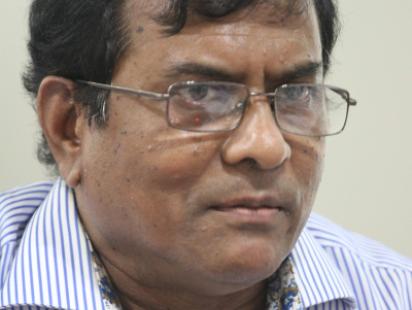
Dr. Nurul Quadir, Joint Secretary, Ministry of Environment and Forests mentioned that Bangladesh was signed the Basel Convention on the Control of Trans-boundary Movements of Hazardous wastes and Disposal and that his ministry will lead in drafting the new law to introduce the e-waste management system. He proposed the application of offer economic instruments and incentives for managing e-waste in our country. He emphasized the role of electronics manufacturers through in an “Extended Producers Responsibility (EPR)” program where they facilitate the government to process e-waste generated through a tax based on the difficulty of processing the waste product. He also suggested incentivising consumers with cash at the retail level to ensure the successful management of e-waste, this will help reduce and manage e-waste.
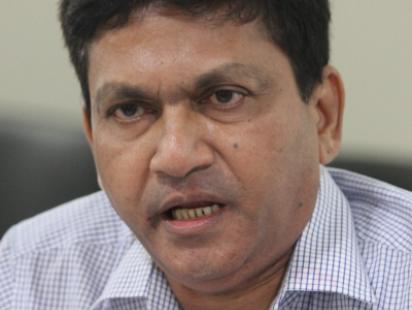
Imtiaz Hashmi, Assistant Director General, Department of Environment reiterated the role of the producers in countries like Japan. He also emphasized the role of the City Corporation in handling the e-waste management process.
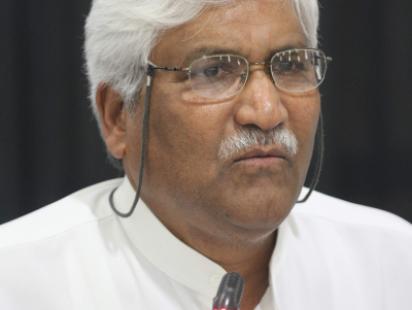
Atiq Rahman, Executive Director, Bangladesh Centre for Advance Studies said with transition into digitalization all process of production have some amount of waste associated, this is intrinsic to the nature. To expedite the movement towards technology hardware, software, human ware and organo-ware must be accounted for. Processes must be in place to address that the welfare of citizens particularly health and safety issues are incorporated with technology.
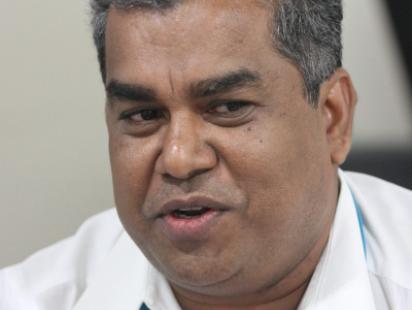
A K M Mamunur Rashid, Climate Change Specialist, UNDP stated that we should understand the scale of scale of population getting affected by e-waste and the risk-measurement scale associated to e-waste and the number of the population involved in this sector and its scale in the market. Understanding the scale will make the policies of e-waste more cost effective.
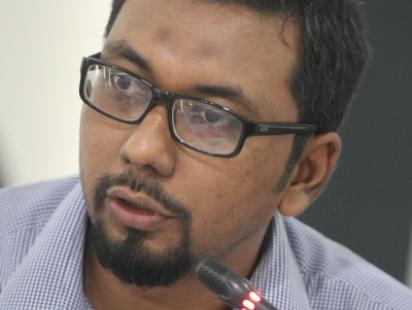
Mohammad Abu Rashed, Public-Private-Partnership Expert stated a business prospect is very hopeful and the possibility to model which will encourage the government to spend money. He also stated the role of the private sector to take up initiatives to a more sustainable and commercial base.
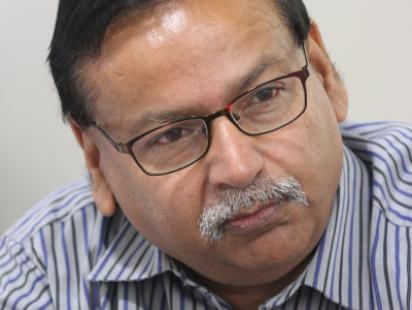
Dr. Saleemul Huq, Director, International Centre for Climate Change and Development emphasized on the government to encourage the sector, help in R&D campaign to build awareness. He also reiterated the government support in formulating and implementing of a proper legislation to help the private sector take initiative on e-waste management.
Protecting the environment for our children and nation is role we must take charge of now, the governmental bodies with implementing laws which encourages environmental protection, and funding of e-waste management, City Corporation with the proper collection and segregation process, producers taking an extended responsibility of product disposal, entrepreneurs with environmental complaint recycling plant, informal recyclers adhering to the regulations, NGOs with disseminating the effects of e-waste, consumers ensuring the e-waste products are disposed through proper channels.



 For all latest news, follow The Daily Star's Google News channel.
For all latest news, follow The Daily Star's Google News channel.
Comments